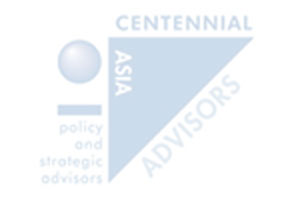Asian Insights
A summary of “Asian Insights” weekly update is published here. The full version is available through paid subscription. Please click here to register your interest. Our executive will get in touch with you.

Highlights from the CAA Weekly Table:
- COVID and Asia: The renewed surge in infections will hurt economic activity but the impact will vary. Even as there are tentative signs that the worst is over in India, it will be a while before the pandemic is brought under control there: the near term prospects therefore remain dull. Similarly, Malaysia is struggling to cope with renewed infections. In Indonesia and the Philippines, economic activity shows signs of rebounding – but tepidly and off a very low base. Singapore’s new lockdown will, however, have limited downside effects as most economic activity will continue and external demand will help offset any domestic weakness.
- China confronts short term and long term policy dilemmas: We disagree with the view that recent monetary data shows that monetary policy is tightening. Weak credit demand rather than a policy-induced deceleration in credit supply is at the root of the slower monetary growth. China’s recently released census will, we believe, force quicker policy changes in areas where China’s leaders had preferred to move slowly. The demographic headwinds have turned awkward more quickly than they had anticipated. Economic growth need not decelerate markedly so long as successful efforts are made to boost total factor productivity. But this will entail a slew of possibly unpopular changes such as raising the retirement age, faster reforms to ease the plight of migrant workers and widening the fiscal base.
Asian political risks continue to creep up:
Conditions are falling into place for potential political frictions in two areas – territorial disputes and country-specific risks, particularly in Thailand.
- Territorial disputes: China has increased the number of its “fishing vessels” in Philippine-claimed waters, putting its relationship with the Philippines at risk, especially when President Duterte finishes his term next year. China’s reported occupation of a swathe of Bhutanese territory, if true, will be resisted by India which is Bhutan’s protector.
- Thailand – rumours about the health of the King cannot be verified with certainty but there is reason to believe that he has not been well. Given the more prominent role the King has taken in the nation’s politics, a health crisis would affect political stability. This is particularly the case given the lack of clarity on royal succession.
Taking stock of the Philippines with 1 year left on Duterte’s term:
- Duterte has been a controversial president in many ways but his economics team has done a sterling job. The tax base has been decisively widened, which has allowed a sizeable increase in infrastructure spending, which will help the country overcome a major constraint on growth. Some other supply side reforms have been made including easing limits on foreign investment.
- However, progress has stalled, exposing some of the continued weaknesses in the country’s political economy. Resistance in the Senate to needed reforms is one example.
- Duterte’s political approach has, however, weakened national institutions and undermined democratic practices. This could compromise some of the gains that the country has made.

Highlights from the CAA Weekly Table:
- Asian economies: We estimate that the tragic surge in COVID infections in India should peak sometime in the third quarter. In the meantime, growth will slow, inflation rise, and key policy initiatives will be delayed. Elsewhere the news is decidedly better, with South Korea and Taiwan firing on all cylinders, Thailand seeing tentative signs of improvement, Indonesian enjoying higher foreign investment inflows and Singapore continuing to do well.
- Asian political risks: In Indonesia, the latest cabinet reshuffle demonstrated the increased clout that President Joko Widodo (Jokowi) wields. He is better-placed to appoint competent technocrats rather than political hacks and is less afraid of standing up for religious moderation.
The US & Asia: Beyond the first 100 days, what difference can Biden make?
Looking beyond the commentaries on Biden’s first 100 days, we believe two themes will drive Biden’s longer term impact on Asia.
- First, the ideological changes his economic policies represent will influence policy making in Asia as well, encouraging a larger role for the state. Biden’s ambitious economic programmes will also help strengthen demand for Asian exports for several years. However, Biden’s trade policies may carry less favourable implications for Asia.
- Second, the geo-political consequences may be more mixed. America’s re-engagement with allies in Asia and tough posture towards China will give the smaller Asian nations more room to manoeuvre against an assertive China. But China is undeterred for now, and may well step up its pressure on Taiwan and other countries with whom it has territorial disputes.
India state elections: BJP’s political juggernaut stopped in its tracks
Assembly elections were held in five states outside the Hindi heartland where the ruling BJP has its base. The result was a clear rebuff to Premier Modi’s ruling BJP party. 4 key takeaways:
- First, the limits of the Hindu nationalism that the BJP espouses are being reached. While the BJP’s vote share in West Bengal soared, it still fell far short of winning the state as it had expected – despite a massive personal effort by Modi and his senior colleagues. It barely made gains in south India though it held onto its strong position in Assam.
- Second, the BJP’s opponents are finding ways to blunt the BJP’s use of Hindu nationalism, showing they can maintain their appeal to Hindus while not forsaking the Muslim vote, which is significant in states such as West Bengal and Kerala.
- Third, it looks like the BJP was under-performing electorally even before the horrendous surge in COVID infections and deaths might have turned voters against it. It is fair to assume that its current standing with voters is probably even worse than the results showed.
- Finally, the Indian polity remains highly fragmented. The former ruling party, the Indian National Congress continued to lose votes and only parties with a limited regional base appear able to stand up to the BJP. That fact may help the BJP maintain its overall grip on national power.
